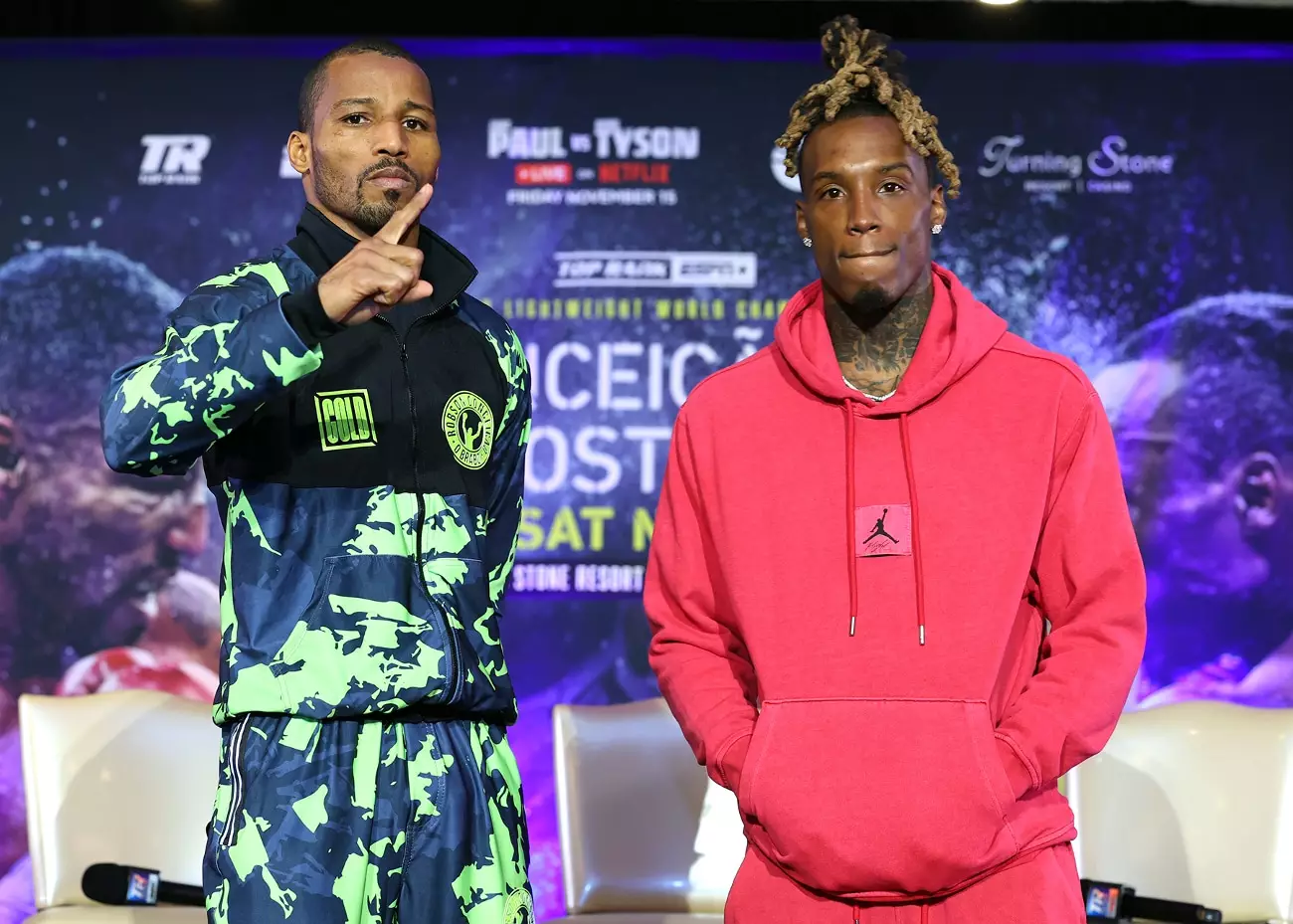As O’Shaquie Foster prepares to step back into the ring for his rematch against WBC super featherweight champion Robson Conceição on November 2 in Verona, New York, there is palpable anticipation surrounding the bout. The stakes could not be higher for Foster, who suffered a split-decision loss in their first encounter on July 6. Despite Foster’s evident talent and previous success, his performance in their initial match raises critical questions about his fighting style and tactical approach as he seeks to reclaim the title.
In their first fight, Foster’s strategy seemed to hinge on defensive maneuvers that ultimately backfired. Although he managed to land some decent punches, they lacked potency and frequency, rendering them ineffective against the more aggressive and determined Conceição. The judges, likely recognizing the disparity in activity, favored Conceição’s cleaner and more assertive strikes. Foster’s tendency to box on the back foot, while sometimes effective, proved detrimental in this scenario, as it allowed Conceição to dictate the pace and rhythm of the match.
Foster needs to revisit his approach if he hopes to turn the tide in this rematch. The narrative of “pitty-pat” punches and minimal engagement resonates with many observers of the sport who believe that a fighter must not only land punches but also do so convincingly to win over both judges and fans alike. The upcoming fight presents Foster with an opportunity to pivot away from his defensive strategy, adopting a more aggressive stance that can disrupt Conceição’s rhythm.
Conduct and Perception
Foster’s response to his defeat in the first fight was less than graceful. His public demeanor—complaining and expressing bitterness—has made it more difficult for fans to empathize with him. Instead of taking the defeat as a learning experience, focusing on self-improvement, and showing humility, he has instead appeared resentful and unwilling to take accountability for his performance. This behavior not only tarnishes his image but also alienates potential supporters, as they crave authenticity and sportsmanship in their athletes.
In a sport where character and personality can be as impactful as skills, Fisher must shift the narrative surrounding him. By adjusting his attitude and embracing the learning process, he can foster a more supportive fanbase, one that appreciates the journey of growth rather than a singular focus on outcomes.
Foster expressed intentions to adopt a different game plan for the rematch, stating, “We plan on doing stuff differently, and we plan on stepping to him.” This mindset is commendable, but intentions alone will not suffice. He must translate those words into action, demonstrating ferocity and volume in his punches against an experienced opponent who capitalizes on hesitation.
As fight night approaches, the anticipation grows not only for the physical matchup but for Foster’s potential evolution as a fighter. His growth will be measured not just by the result of the bout, but by how well he adapts his strategy, learns from his past, and redefines his mindset. In embarking on this significant rematch, O’Shaquie Foster stands at a crucial crossroads—one that could define his career and perhaps even his legacy in the sport.

